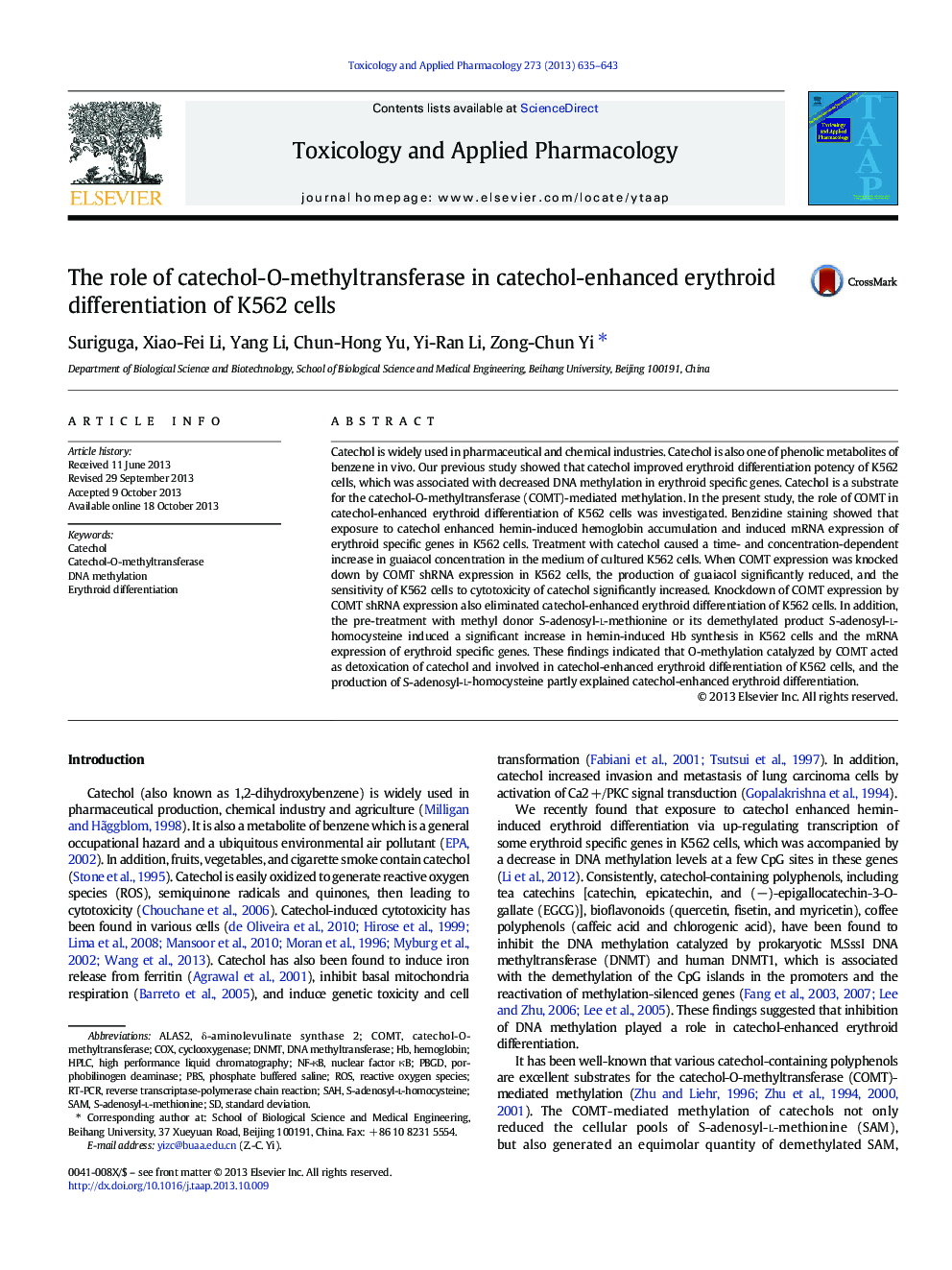| کد مقاله | کد نشریه | سال انتشار | مقاله انگلیسی | نسخه تمام متن |
|---|---|---|---|---|
| 5846491 | 1128482 | 2013 | 9 صفحه PDF | دانلود رایگان |

- Catechol enhanced hemin-induced hemoglobin accumulation.
- COMT-catalyzed methylation acted as detoxication of catechol.
- COMT involved in catechol-enhanced erythroid differentiation
Catechol is widely used in pharmaceutical and chemical industries. Catechol is also one of phenolic metabolites of benzene in vivo. Our previous study showed that catechol improved erythroid differentiation potency of K562 cells, which was associated with decreased DNA methylation in erythroid specific genes. Catechol is a substrate for the catechol-O-methyltransferase (COMT)-mediated methylation. In the present study, the role of COMT in catechol-enhanced erythroid differentiation of K562 cells was investigated. Benzidine staining showed that exposure to catechol enhanced hemin-induced hemoglobin accumulation and induced mRNA expression of erythroid specific genes in K562 cells. Treatment with catechol caused a time- and concentration-dependent increase in guaiacol concentration in the medium of cultured K562 cells. When COMT expression was knocked down by COMT shRNA expression in K562 cells, the production of guaiacol significantly reduced, and the sensitivity of K562 cells to cytotoxicity of catechol significantly increased. Knockdown of COMT expression by COMT shRNA expression also eliminated catechol-enhanced erythroid differentiation of K562 cells. In addition, the pre-treatment with methyl donor S-adenosyl-l-methionine or its demethylated product S-adenosyl-l-homocysteine induced a significant increase in hemin-induced Hb synthesis in K562 cells and the mRNA expression of erythroid specific genes. These findings indicated that O-methylation catalyzed by COMT acted as detoxication of catechol and involved in catechol-enhanced erythroid differentiation of K562 cells, and the production of S-adenosyl-l-homocysteine partly explained catechol-enhanced erythroid differentiation.
Journal: Toxicology and Applied Pharmacology - Volume 273, Issue 3, 15 December 2013, Pages 635-643